PRESERVING A MILITARY LEGACY FOR FUTURE GENERATIONS
The following Reflections represents CAPT James Garrett’s legacy of his military service from 1966 to 2008. If you are a Veteran, consider preserving a record of your own military service, including your memories and photographs, on Togetherweserved.com (TWS), the leading archive of living military history. The following Service Reflections is an easy-to-complete self-interview, located on your TWS Military Service Page, which enables you to remember key people and events from your military service and the impact they made on your life. Start recording your own Military Memories HERE.
Please describe who or what influenced your decision to join the Navy.

I was graduating from Westminster High School in a few months (1966) and knowing that I would not be able to afford college, I thought enlisting in the military would be a good thing, especially if it was possible to get college paid for afterwards. Being landlocked and with Lowery Air Force Base across town, the recruiting ads I thought the Air Force might be a good place to go. The Air Force recruiter came to my house to talk with me but to my amazement the recruiter told me there was a waiting list, imagine that with the Vietnam War going on.
I couldn’t wait so I talked with the recruiter for the Navy and a month or so later I enlisted as a Seaman Apprentice in the Naval Reserve until after graduation from high school. I enlisted at the age of 17 in what was called at the time a minority enlistment since I would not turn 18 until after I entered Boot Camp in San Diego.
After watching Victory at Sea and Silent Service episodes on TV, I thought that I would be a sailor in submarines. After Boot Camp, the Navy had the same but different idea, I was assigned to a Submarine Rescue Ship (ASR) in SubPac (Pearl Harbor).
Whether you were in the service for several years or as a career, please describe the direction or path you took. What was your reason for leaving?

I went to Boot Camp in San Diego in August 1966 and tested well for the ratings of Sonarman or Radioman. Upon completion of Boot Camp I was assigned to the USS Greenlet ASR-10 in Pearl Harbor, HI. Later I was told that I could be accepted for Sonar School on the STAR program which would have sent me to Class “A” School, promotion to Petty Officer Third Class with a requirement to reenlist up to six years. I was already focusing on the rate requirements for Signalman so I declined the “A” School for Sonarman.
With my mother being really ill with Lou Gehrig’s disease I got out of the Navy and went home. When her illness became terminal I tried different things, went to college and subsequently applied for and was accepted by the Denver Police Department. A couple of my police buddies were in the Army National Guard and wanted me to join as well, particularly with the Military Police. I checked it out, was even offered an opportunity as a Warrant Officer, but declined and decided to re-affiliate with the Navy. A sharp recruiter obtained my Second Class Crow even with time served and I signed on the dotted line and stayed for the next 30 plus years.
If you participated in any military operations, including combat, humanitarian and peacekeeping operations, please describe those which made a lasting impact on you and, if life-changing, in what way?

While on-board the USS Greenlet ASR-10, we participated in operations off the coast and in some coastal ports in Vietnam especially assisting the Air Force in salvaging equipment from aircraft that went down off the coast of Cam Ranh Bay. (There’s that Air Force connection again)
In 1968, a few months after the Pueblo capture, we met with the USS Banner, Pueblo’s sister ship, refueled her, provided stores to assist in her return to Japan. ASR’s normally don’t underway replenish other ships as a rule. I was the main helmsman for submarine rescue ops (four point moor) and this underway replenishment operation.
While aboard the USS Dale DLG-19 and part of the USS Enterprise task group we conducted SAR OPS as she conducted flight ops and sorties into Vietnam. Later we were called to assist with a task group to search for the wreckage of the EC-121 aircraft that was shot down by the North Koreans in April 1969. Those were tense, edge of your seat times. We were already heavily involved in the Vietnam War, now with a second incident with the North Koreans (the first being the capture of the USS Pueblo a year earlier) was it going to escalate with the North Koreans? The Soviet Navy was ever present which was an experience in itself.
Of all your duty stations or assignments, which one do you have fondest memories of and why? Which was your least favorite?

I enjoyed duty on both the USS Greenlet and USS Dale.The Greenlet was a smaller ship therefore I got to know all of the crew. The Dale was much larger but allowed me to practice my Signalman rate in a more operational way. The Greenlet even though a Navy ship was part of SubPac so we got to enjoy some of the perks like great chow, we ate off of plates instead of steam trays and didn’t have to be as spit and polish. The CO liked to take cruises that took us to Lahaina, Maui with skeet shooting and fishing on the way and great liberty. We had to play target and torpedo retriever for the subs while there, but that was fun and hard work as well.
The Dale involved operations with task groups but the liberty ports of Chinhae (South Korea), Nagasaki, Sasebo, Yokosuka, Japan, Keelung, Taiwan, Subic Bay, and Auckland New Zealand, were the best. You couldn’t script a busier schedule of “steaming”, port calls, crisis events, and an ASW exercise of four countries (US, Great Britain, Australia, and New Zealand) participated. I think the sailors of navy of the host country, New Zealand, weren’t very thrilled.
From your entire military service, describe any memories you still reflect back on to this day.

Recovery operations after the EC121 was shot down by the North Koreans in Jan 1969 and subsequent interactions with the Soviet Navy. This was the cold war, with the Soviets trailing us around, the unpredictable North Koreans (the capture of the USS Pueblo was only a year before) and the Vietnam War in full swing. It was cold and scary at times. We looked for survivors but only found debris and a couple of bodies. Reminds you of your mortality, especially so far from home.
What professional achievements are you most proud of from your military career?

Promotions as a Signalman to First Class, then with great mentoring from my Reserve Commanding Officer and Executive Officer, CAPT Donald Monroe and CDR Lynn Albi respectively, I was given the opportunity to test and interview for a Direct Commission as an Ensign in the Intelligence Program. I was commissioned as an Ensign in 1984 and through the years and the ranks I enjoyed numerous assignments and was given increasing levels of responsibility which culminated in being selected for Commanding Officer a Naval Reserve unit and final promotion to Captain. From E2 to O6 I enjoyed a career that was fulfilling and rewarding. I gave 100 percent to the Navy and the Navy reciprocated with great mentors and service members to work with and work for.
Of all the medals, awards, formal presentations and qualification badges you received, or other memorabilia, which one is the most meaningful to you and why?
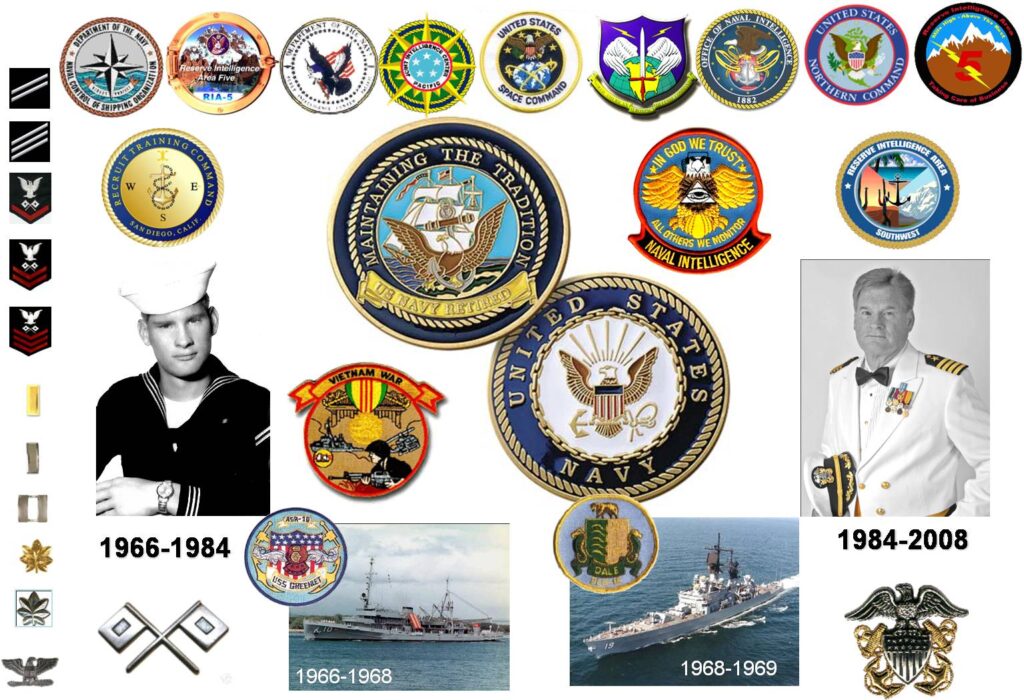
I received the typical commendation awards, marksmen badges and ribbon devices but the two most meaningful accomplishments were my crows and rating as a signalman (E4-E6) and later my selection and promotion to Ensign with subsequent leadership positions and final promotion to Captain. I enjoyed working with outstanding shipmates, enlisted and officer. I achieved a very successful career from E2 to O6 because of outstanding shipmates and mentors.
Which individual(s) from your time in the military stand out as having the most positive impact on you and why?
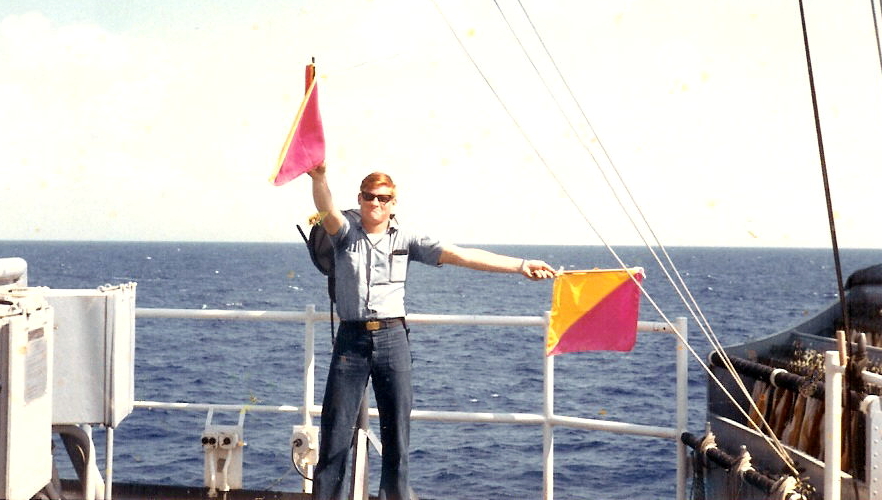
I worked for some great people Officer and Enlisted who mentored me to work hard, volunteer for hard jobs and inspired me to do great things for the Navy and myself, even when things may not have going so well. When I was a signalman striker, SM1 Charlie Yates was a great mentor in helping me to achieve rate and move away from deck division which was not my favorite assignment. I still do not like painting!
I had great Senior Officers who mentored me to achieve the memorable milestones in my career. CDR Donald Monroe and CDR Lynn Albi were instrumental in my applying for a commission. CDR Monroe worked tirelessly to find out what the barriers were in the selection process. I can’t thank him enough.
As I progressed through the ranks in my Navy Reserve career, I experienced great counsel when personal problems could have derailed me as I contemplated retiring many times. They provided wisdom and kept me going through thick and thin. As a result of their commitment and leadership when I needed it most, I was able to return that same advice to junior officers as a Commanding Officer and a Senior Officer. It is a great feeling of satisfaction when the one you mentor does well and is successful.
Can you recount a particular incident from your service, which may or may not have been funny at the time, but still makes you laugh?
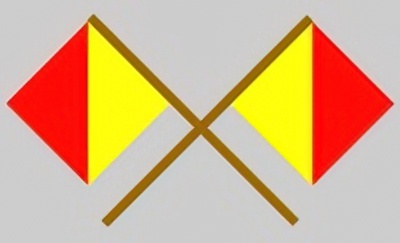
Still get a chuckle about this. I was a Signalman aboard the USS Dale DLG-19 and we made a port call in Taiwan. One afternoon the signal gang went on liberty to one of the bars in town. A group of bar hostesses came to our table and sat with us but they also began conversing with each other in Chinese and laughing among themselves. That has occurred to many of us, right? After a period of time this became annoying to us as a group and we began to converse among ourselves too, only using semaphore with our hands (no flags)!! No vocal conversation at all. We did this for awhile, totally ignoring the girls in the process, and by the way we were laughing our butts off as well.
The bar hostesses eventually caught on to our game and their conversations changed to English. It was fun, it was humorous, and great rate practice.
What profession did you follow after your military service and what are you doing now? if you are currently serving, what is your present occupational specialty?
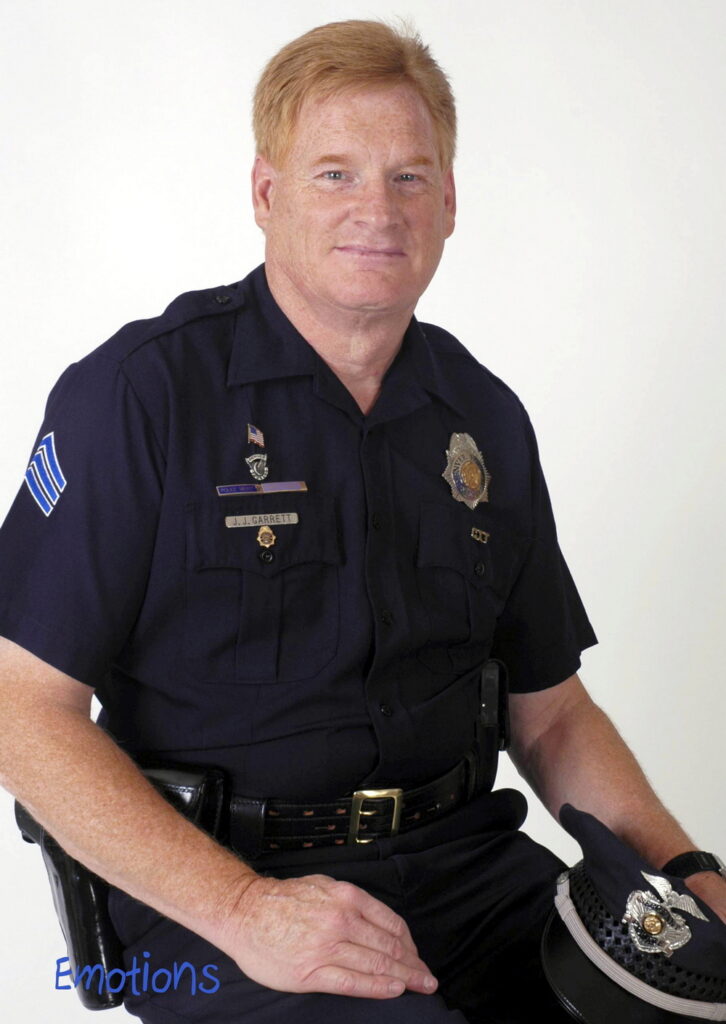
I was hired by the Denver Police Department as a Law Enforcement career I had been thinking about while on active duty. I stayed in the Navy Reserve during my entire career and I always had to be careful which uniform or parts of uniforms I put on when reporting to police roll call at 2am. Cops like military members like to have fun at your expense especially when it is self-inflicted. I retired from the DPD after 32 years of service.
What military associations are you a member of, if any? what specific benefits do you derive from your memberships?
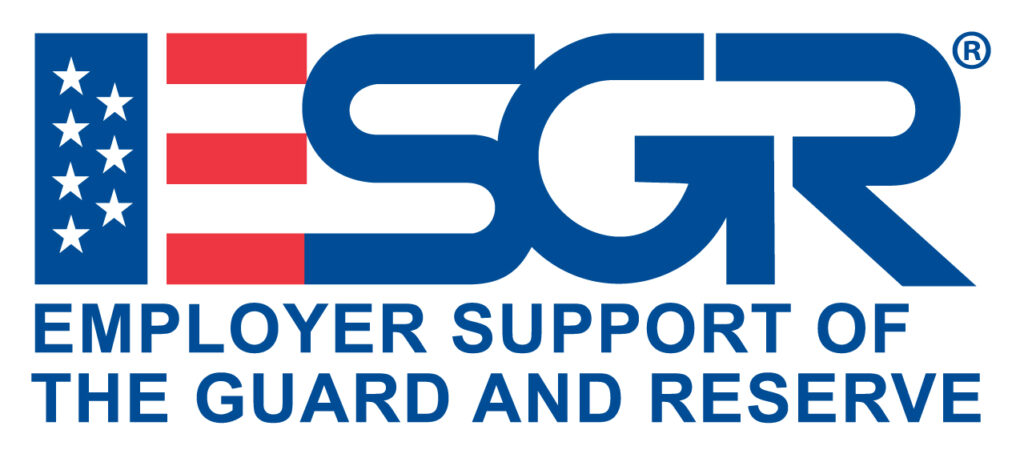
Naval Institute, American Legion, and MOAA. I am also a volunteer with the Employer Support of the Guard and Reserve (ESGR). We work with employers and Reserve Component members in all aspects of educating and mentoring them about employment rights as well supporting employment initiatives. Being a Reserve member for many years it is gratifying to do whatever can be done to help our Guard and Reserve members in whatever capacity is necessary.
In what ways has serving in the military influenced the way you have approached your life and your career? What do you miss most about your time in the service?
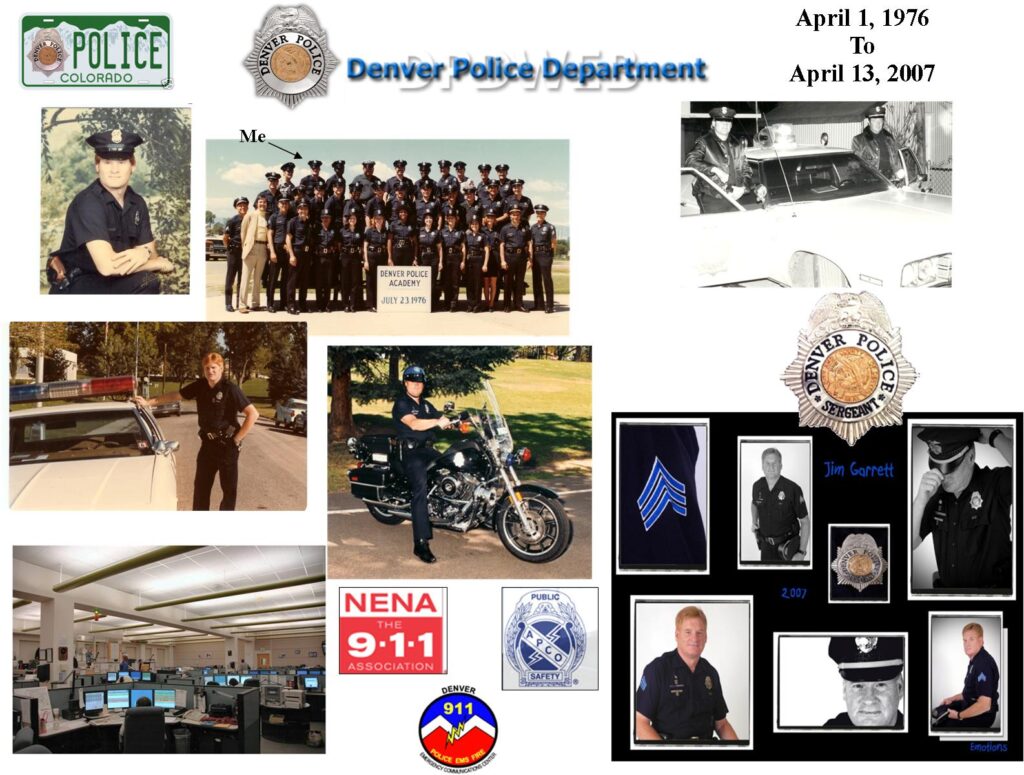
I enjoyed my service with the Navy, the Navy was good to me as well. The Navy taught me Duty, Honor, and Commitment, traits the served me well with my Police Service. As I tell a lot of young people, the military will instill in them a strong work ethic and pride in who they are. By listening and hopefully emulating those who were in leadership positions both formal and informal, I gained confidence in my abilities and always sought after worthwhile assignments that tested me and looked forward to gaining positions of responsibility. This led to experiences that were stressful at times, but for the most part were fun and rewarding.
My experience and discipline gained from the military assisted me in all aspects of my civilian career in the Denver Police Department. Being a police officer and serving in Navy Reserve for just as many years was very special. I served my community and my country, it doesn’t get any better than that.
Based on your own experiences, what advice would you give to those who have recently joined the Navy?
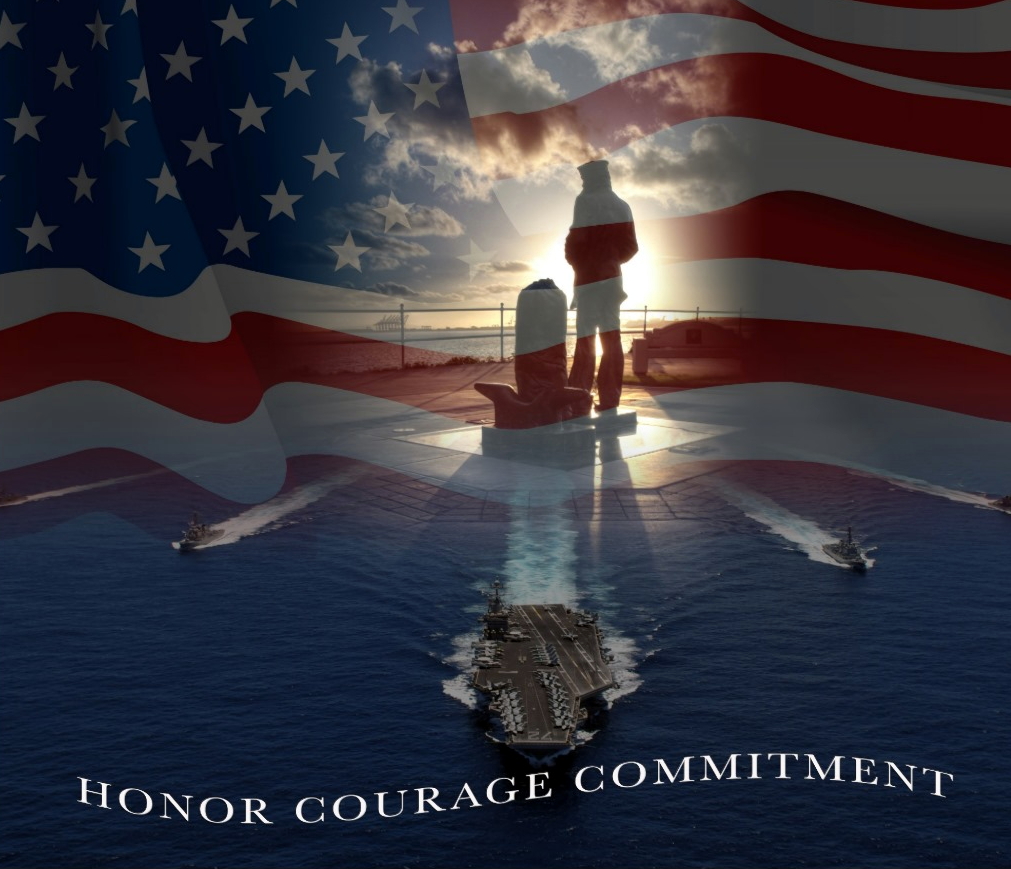
Duty, honor and commitment. Be the best you can be and always try to achieve your goals. I learned that if you do the best you can, volunteer for the hard jobs and commit 100%, promotions, recognition and job satisfaction will come two-fold. The Navy was good to me in that I got to do and see things that I would have not been able to do without those three ethical standards. Most of all, don’t think of naval service as a chore, but as an adventure, a life experience others will never get to have in their lifetime. I went from Seaman Apprentice to Captain in my career, something the recruiter did not tell me could be possible, nor did I ever think while chipping paint in deck division on my first ship that I would accomplish all that I have. I learned to watch and listen to those around me, especially the great First Class and Chiefs that I worked for and later as a Commissioned Officer those Chiefs who made me look good and provided sage advice.
As a young Junior Officer I was seeking an assignment in a particular unit, I told the CO I would take whatever assignment he had. Without pause he selected me because as he said, I volunteered for a hard job, something not many were willing to do. You have to put yourself out there, accept the responsibility in order to gain more responsibility. During my retirement from the Navy and answering questions, I had young enlisted Sailors come up and look at my brag book and memorabilia and heard them remark about my career path and promotions. They asked if E2 to O6 was possible for them and I said, yes it is, work hard for it!
In what ways has togetherweserved.com helped you remember your military service and the friends you served with.
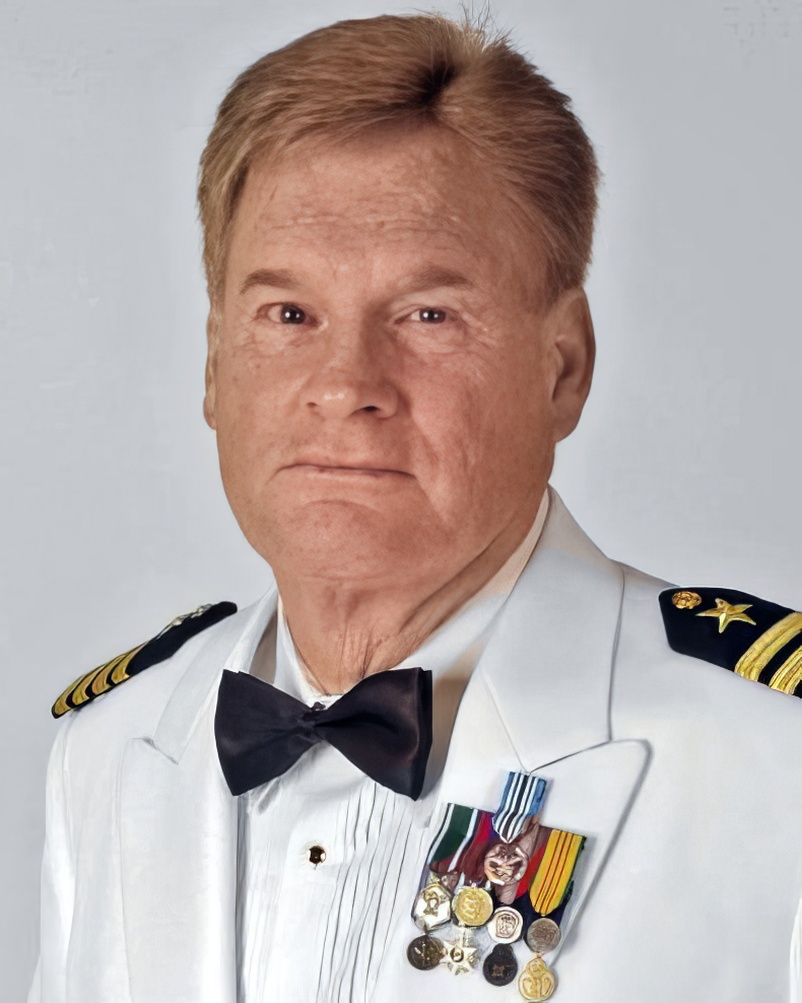
I have been able to touch base with some of my shipmates that I have not communicated with in years. This has been a great website that is secure that I can place items, photos and remembrances of my military career. More importantly, it is fun and also humbling to see what others have done in the service of their country. Thanks to all who have served and continue to serve.
PRESERVE YOUR OWN SERVICE MEMORIES!
Boot Camp, Units, Combat Operations
Join Togetherweserved.com to Create a Legacy of Your Service
U.S. Marine Corps, U.S. Navy, U.S. Air Force, U.S. Army, U.S. Coast Guard

0 Comments